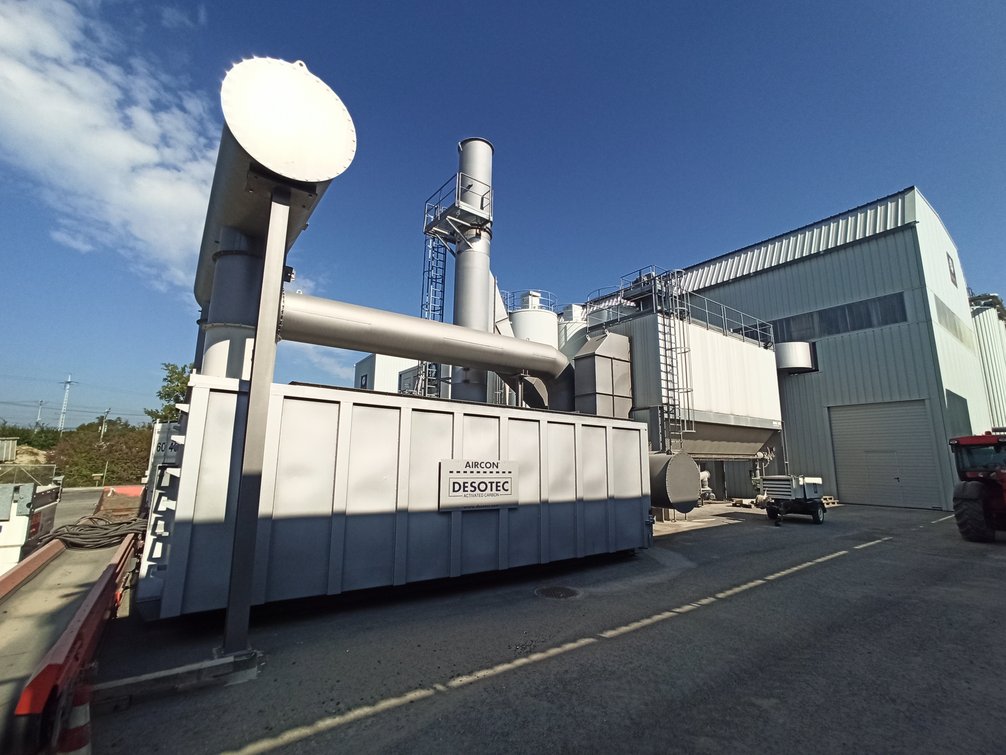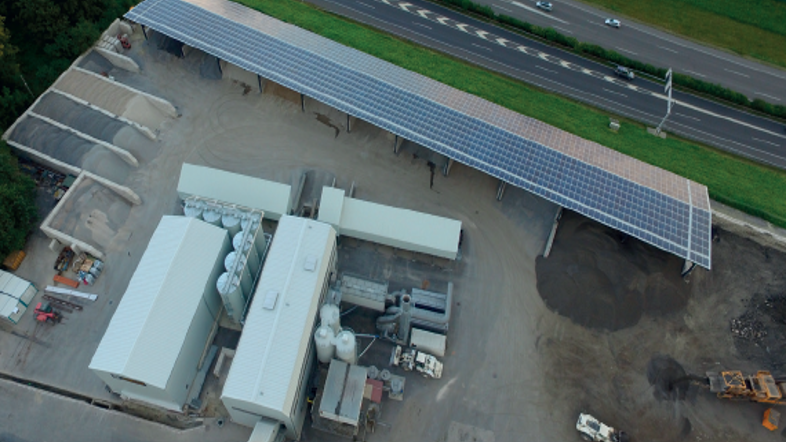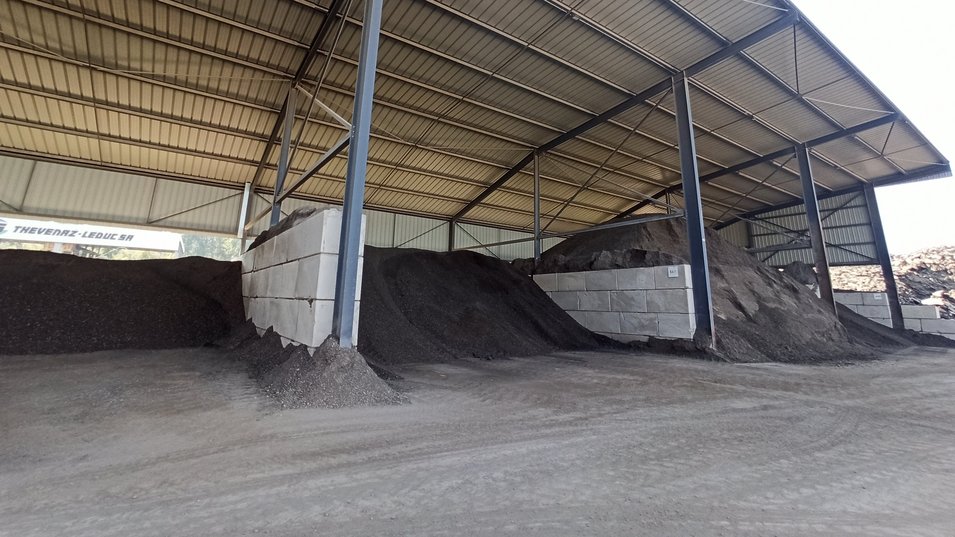Setting the standard for asphalt recycling

The Swiss road network is heavily dependent on asphalt. It’s everywhere. Alongside aggregate, the main ingredient of this highly resilient material is bitumen, a tough binder derived from crude oil that is also responsible for the dark colour of most roads.
It takes a lot of energy to produce asphalt, and especially to liquefy the bitumen. In fact, the plants where bitumen-based products are made account for more than a fifth of Implenia Switzerland’s total greenhouse gas emissions. So if the company does the right things here, there is huge potential to improve its environmental performance.
Implenia renovated its Trois Ponts production facility in Ecublens in 2015 and 2016, focusing particularly on its environmental impact. The new bitumen tanks at the plant in western Switzerland have much better thermal insulation than the old ones, and the company has installed an additional production line that can handle recycled aggregate.
The production of recycled asphalt is part of Implenia’s circular approach, which encourages recycling and re-use of construction materials. Recycling helps to conserve stocks of gravel and reduce the use of bitumen and fillers in the production process.
By 2019 the Trois Ponts surfacing plant was already meeting 30 percent of its needs with recycled materials. Growing customer demand is helping us recycle ever larger quantities of building materials used in road surfacing.
But processing secondary raw materials requires a higher temperature, which produces more pollutants. So to prevent additional emissions, the plant installed an efficient active carbon filter to capture volatile organic compounds. As a result, Trois Ponts has the lowest air pollution readings of any plant making bitumen products in Switzerland.
Implenia has also installed a large 2,600 square metre solar array on the roof of the asphalt plant. This generates more than 470 MWh of renewable electricity a year. The plant itself consumes around 40 percent of this power directly on site for various processes, such as heating bitumen tanks and running engines.



